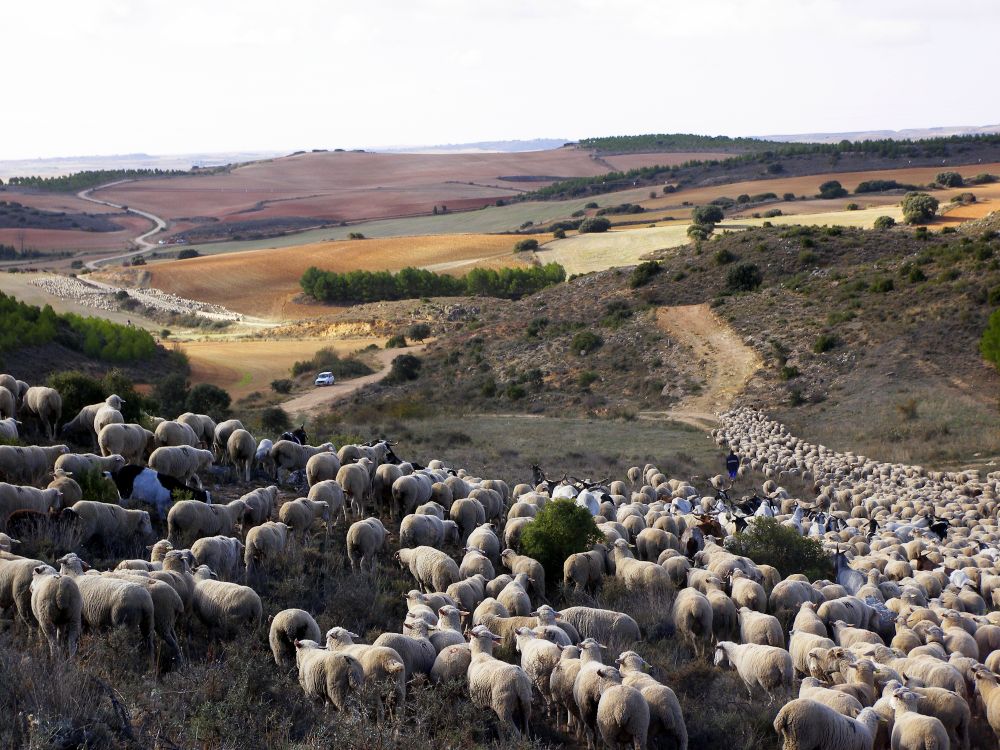The Colmenarejo City Council has made public on social networks the meeting held with the general director of Agriculture, Livestock and Food and with the Head of the Livestock Routes Area of the Community of Madrid. The purpose of this meeting is to authorize the transformation of three livestock tracks into a highway connection with the M-503. The livestock trails affected are the Cordel de la Espernada, the Vereda del Madroñal and the Colada de la Venta de San Antonio. All of them run in a north-south direction, from the urban area of Colmenarejo to Villanueva del Pardillo.

Furthermore, enabling this connection would inevitably affect protected soils of the Regional Park of the Middle Course of the Guadarrama River and its Environment classified as Protection and Improvement, which also belong to the SCI/ZEC Cuenca del Río Guadarrama (ES311000) of the Natura 2000 Network. It is a European ecological network whose protection and management aims to maintain or reestablish biological diversity, through the protection of types of natural habitats and species of wild flora and fauna of community interest, objectives that, Obviously, they do not appear with this type of projects.

Ecologists in Action expresses its concern about the fact that those responsible for safeguarding the Madrid livestock routes are negotiating its transformation into a motorized road. Those livestock trailswhen crossing a protected space, according to the Livestock Routes Law from Madrid’s community, should be declared of “natural interest”. In short, those who should ensure its adequate conservation by adopting as many measures for its restoration and protection as are necessary, promoting biodiversity and the genetic exchange of flora and fauna through livestock routes, as stated in current legislation, make a manifest resignation. of the objectives that should motivate them.


New road will affect several livestock routes in the Community of Madrid
This action would go, precisely, in the opposite direction of what the Network of Livestock Routes in the Community of Madrid. A Network fragmented by infrastructure, degraded by thousands of “temporary” occupations, systematically usurped, its widths by hundreds of neighboring ones, and choked by illegal dumping. In short, they are victims of a diffuse urban planning model, completely dependent on the private vehicle that becomes an insatiable predator of resources.
In this context, it is alarming that two public administrations are only capable of negotiating a solution that involves compromising the livestock transit of the livestock trailstheir compatible and complementary uses and the recognized function as “biological corridors”.
Given these facts, Ecologists in Action of the Madrid’s community and the vowels of the Section of Livestock Routes of the Community of Madrid have requested information and explanations about this project from the General Directorate of Agriculture, Livestock and Food of the Ministry of the Environment.
“In an overwhelming context of global warming, climate change, environmental crisis, territorial fragmentation and loss of biodiversity, these types of proposals are dangerous for the health of citizens and the natural environment,” says the environmental organization. At the same time, he emphasizes that “in these conditions, what is truly urgent is to reinforce the protection and improvement of natural spaces and livestock trailsand not favor the massive use of private vehicles.”

